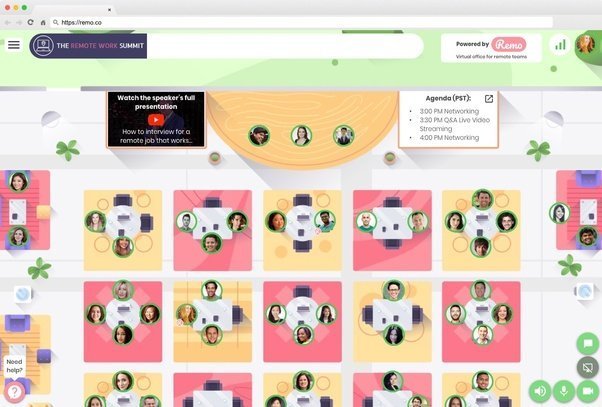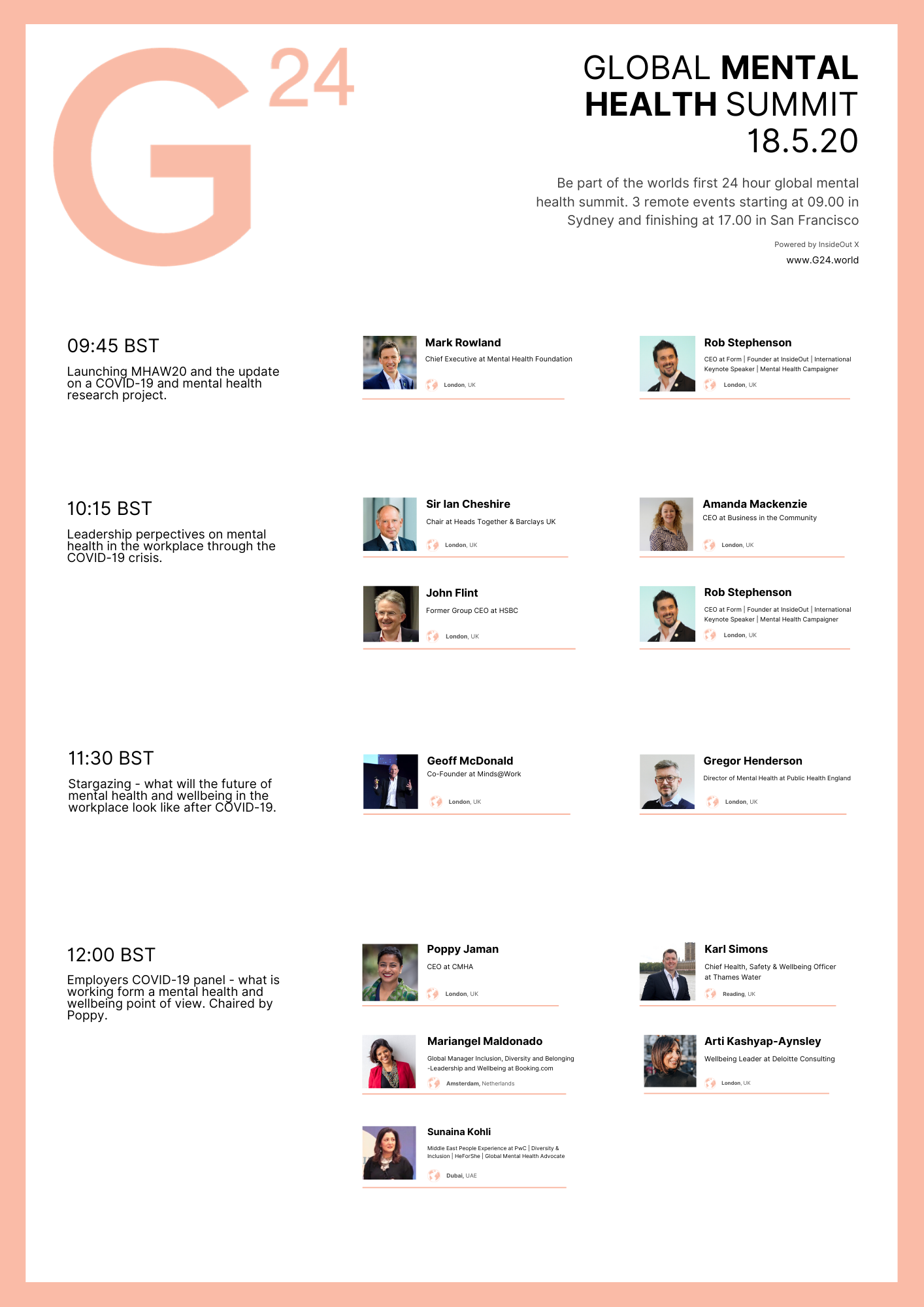In these unprecedented times of COVID-19 we are seeing a number of crises:
- The COVOD-19 crisis iteslf
- The resulting economic crisis
- A mental health crisis
We are seeing workplaces adapt at pace to continue doing business as best they can. Some are thriving and some are simply surviving. Governments are stepping up to one degree or another and the world is still turning. We are all in it together. However, there is a huge human cost that extends beyond the physical. We are facing a mental health crisis.
The mental health crisis explained
Our employees are facing a perfect storm which is threatening our mental health:
- There is a general level of fear and uncertainty leading to a rise in anxiety
- Physical distancing is eroding our social connections which are a key, yet often unnoticed, pillar of our mental health
- Isolation can lead to symptoms of depression such as lethargy, lack of motivation and sense of heaviness
- For many, the absence of removal of meaningful work is eroding our sense or purpose and identify
All of these factors and more are contributing to a mental health crisis on a global scale like nothing we have ever witnessed yet our ability to reach our employees is also hampered and restricted to digital means.
Keeping the conversation going
May is Mental Health Awareness Month in the US. 18 May marks the start of Mental Health Awareness Week in the UK. These awareness initiatives would generally involve thousands of talks, panel events, initiatives, get togethers, events and many other ideals that bring people together on the mental health agenda to help smash the stigma of mental ill-health and promote positive mental wellbeing.
We have to make sure that these conversations still happen and we need to flex then to help our employees who are struggling for the first time right now.
I am calling on employers globally to make sure that you are eating the mental health and wellbeing of employees as a key strategic priority alongside business continuity. How you support employees right now will be a defining factor in their engagement and loyalty when we come out the other side.
Employees will remember how you made them feel.
Tips for employers
- Make the mental health and wellbeing of employees a strategic priority. Make sure it gets as much airtime in all hands meetings as business imperatives.
- Have a plan for the next 3 months and communicate it. Allow for flexibility in his plan as the world will change during this time.
- Let employees know what resources are available and how to access them.
- Lead with empathy and vulnerability. If this is not your style, find someone else to take responsibility for mental health and wellbeing. (I will give you a clue – she is probably a woman).
- Find ways to help employees connect. Content alone is not enough.
- Instil HOPE in your people.
For an example of strong leadership look to how the CEO of the Marriott International communicates.
Tips for employees
We are all in very different positions right now. Some working. Some not. Some living alone. Some dealing with the challenges of having a your family. Some able to get outside. Some not. Here are a few tips that will hopefully help:
- Take a breath. It is ok to feel low, anxious or worried right now. It will pass. Take this from someone who experiences a mental illness (bipolar) and thrives. It will pass.
- Keep talking. If you are feeling low. Find someone talk to about it. Talking helps.
- Connect digitally. Find ways to connect socially with people who you enjoy spending time with. Make the effort to do this. Virtual coffees, lunches, quiz nights, chats. If you the London time zone works for you, feel free to join me at my Wednesday Lunch Club.
- Find your sense of purpose. If this cannot be from work right now, use the time to learn something new reignite a hobby or passion; be curious and enjoy the gift of time.
- Care for yourself. Without guilt. Now is the time to really look after you.
- Help others. There are many who will be struggling more than you. Find ways to help them. Check in with neighbours, donate time. Just do it. It is great for your won wellbeing.
- Prioritse sleep.
- Limit alcohol. Is is not the answer. (Music is by the way)
- Eat well.
- Take breaks in your day. If you are working via videoconference you will have noticed how intense a full day feels. Schedule gaps between calls. Get up every hour. Move around. Go outside if you can.
- Exercise. In what ever way you can.
- Allow yourself brain space, Creativity will flow.
My contribution
As a mental health campaigner I have adopted a voice of positivity on mental health and wellbeing through the crisis. Follow me on LinkedIn for my content of check it out here.
As I saw the crisis unfold I quickly pivoted what I do as campaigner and keynote speaker into the remote world with the use of a cutting edge platform that facilities connections and allows for virtual networking. This is really important to me with people being physically distanced.

I then thought that it would be really cool to bring the world together on the mental health agenda at a global event. Very quickly G24 was born. G24 is the world’s first global 24 hour mental health summit. It will be delivered remotely with 3 consecutive events starting at 9am in Sydney on May 18 and finishing at 5pm in San Francisco.

We are curating some world class content across the times zones. This is my contribution to keeping the conversation going and, importantly, helping people connect. More information can be found here.
What are you going to do?
Whatever you decide to do on the mental health and wellbeing agenda my advice is to do something.
How you support your employees through these times will define how you bounce back as an organisation.


